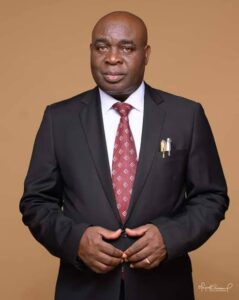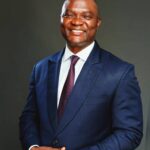Election has become a ritual that leads nowhere – Prof. Hassan Salihu
Our Politics is not Service Oriented,
Political Parties lack ideologies these have been our major problem – Akogun Iyiola Oyedepo
We have enough resources that can take care of us, if used effectively – Ass. Prof. Abdulazeez Adekola
By: Aminah Salako – Adekunle
Political experts have identified corruption, misplacement of priorities, manipulation of elections, self – centered leadership, among others, as impediments to democratic development in the country.
They made the assertion on this year’s commemoration of Democracy Day, which marks 26 years of uninterrupted democratic rule in the country.
In a submission, the President, Nigeria Political Science Association, NPSA, Prof. Hassan Salihu maintained that Nigeria has not fared well under the democratic system with the attitude of politicians, which often exhibits autocratic tendencies and prioritises personal gain over democratic values.
Prof. Hassan argued that judging by the recent forecast by Bretton Wood Institution that poverty level rate may rise to 56% by 2027, showing that the economic empowerment under democratic system has a long way to go.
” Corruption, which has also weakened people’s faith in democracy, is another major factor contributing to the decline in voter turnout. Not respecting extant laws and heavy reliance on economic advisories from outside sources that are impoverishing more Nigerians are other limiting factors in consolidating democracy in the country.
Voter turnout has been progressively declining since 1999, with participation rates of approximately 26.7% in the 2023 presidential election, down from 52.3% in 1999, 43.7% in 2015, and 34.75% in 2019. The figure recorded in the 2023 presidential election marks the lowest level in Nigeria’s electoral history to date. This trend means that a minority of voters have been electing heads of government, except for one. Based on the foregoing, it is evident that democracy has a long way to go in consolidating itself”, he said.

Prof. Hassan Salihu, President, Nigerian Political Science Association.
The Lecturer of Political Science at the University of Ilorin, condemned the emerging trend of hereditary politics.
“The emerging trend of hereditary politics, where political power rotates within the same families, carries a significant moral burden and may negatively impact the political process. This trend, where sons and daughters of notable political actors publicly defend their fathers on social media and engage in political movements and donations, challenges the principle of a level playing field for all and constitutes a significant obstacle to achieving it”, Prof. Hassan asserted.
The NPSA President suggested some solutions to the challenges:
“To turn the tide, Nigerians must take their political destiny into their own hands by being more engaged in the political process and demanding accountability. The country’s politicians need to appreciate the struggles of Nigerians who helped birth democracy in 1999 and curb their self-serving tendencies.
” Necessary electoral reforms, a more independent judiciary, and adherence to party manifestoes are also crucial for democracy to consolidate and thrive. Ultimately, the future of democracy in Nigeria is not bleak. However, its energy depends on the collective efforts of its citizens and leaders to prioritise democratic values, accountability, and the well-being of the people” he said.
Also, the Leader of Kwara Redemption Movement, Akogun Iyiola Oyedepo, emphasized the need for Nigerians to elect competent and patriotic politicians.
Akogun Oyedepo called for constitution amendment to allow well educated people to be elected into power, rather than the minimum requirement of School Leaving Certificate to contest election. This, he said, is not desirable for the nation’s democratic growth.
The frontline politician of June 12 called for service oriented politics among Nigeria politicians for the country to record meaningful development.

Akogun Iyiola Oyedepo, Leader of Kwara Redemption Movement.
“Our Politics is not service oriented and that has been our major problem since 1999, we still have a long of kilometers to cover if we want development ” he said.
The Director, Centre for Peace and Security Studies, Al-Hikmah University Ilorin, Associate Professor Abdulazeez Adekola said though there are some fundamental benefits of human rights under the present uninterrupted democratic system, he however stressed that the will of the people should prevail in electing leaders.
Ass. Prof. Adekola stated that democracy should change from enterprise to service to humanity, as the nation has enough human and natural resources to take care of people’s welfare, if corruption is well managed.

Associate Professor Abdulazeez Adekola, Director, Centre for Peace and Security Studies, Al-Hikmah University Ilorin.
In a contribution, a Gender Advocate, Mrs. Folashade Aransiola who went down memory lane, said that June 12 was the standard for democratic process in Nigeria, but was disheartened that the gains of democracy is yet to reach the masses, 26 years after uninterrupted democracy.
Mrs. Aransiola argued that the post June 12 journey was not encouraging as democratic processes is relegating, with contradictory judgement by the judiciary and the lawmakers as well as executive prioritizing material wealth over the needs of the electorate.

Mrs. Folashade Aransiola, CEO FEMTHRIVE.
The Chief Executive Officer of FEMTHRIVE Hub, expressed worry that instead of the country progressing , it is retrogressing democratically.
The respondents however called for electoral reforms, a more independent judiciary, and adherence to party manifestos for democracy to consolidate and thrive.
June 12 was adopted in 2018 as Nigeria’s Democracy Day by the administration of former President Muhammadu Buhari in honour of the winner of the June 12, 1993, election, Chief Moshood Kashimawo Olawale Abiola.



